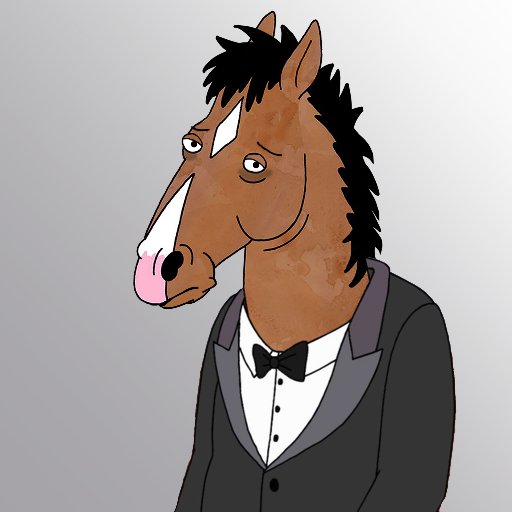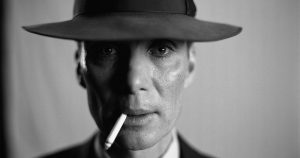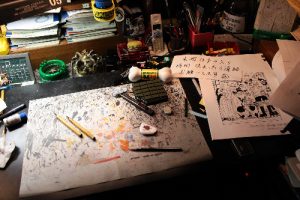“Why are some of the characters animals?” is the first question for every viewer of this series. BoJack Horseman is a Hollywood star who made a name for himself with an ineffectual sitcom in the 90s. And… he is a horse.
Many of the characters are animals: BoJack’s agent, Princess Caroline, is a pink cat. His friend and competitor, Mr. Peanut Butter, is a perpetually excited yellow labrador. But other characters, such as BoJack’s roommate Todd and his ghostwriter Diane, are normal people. This is never really the issue. In this universe, a cat and a mouse can go on a date – they joke about it, but it doesn’t seem to bother anyone.
So why all the animals? Is this perhaps a metaphor for non-white people in the US? Or do the animals represent celebrities, who are different than normal people? No and no. A gecko can also work as a window cleaner, while a young woman becomes a successful pop singer. The allocation appears arbitrary.
Search for Meaning
The high point of Bojack’s career passed almost two decades ago, and he fights against being forgotten. He wants to make a serious film about his hero from his youth, the racehorse Secretariat. As a has-been, he has ample money but enjoys little recognition. After a painful childhood with demanding but distant parents (both also horses), he is addicted to appreciation.
BoJack constantly wants to be acclaimed by the masses, but he has so much self-hatred that he can not muster the patience for real friendships with other people. His urge for self-destruction is usually expressed via misanthropy towards his fellow human beings (and animals). Nevertheless, he needs permanent reassurance that he is a good person, “deep down.” Diane, who knows BoJack especially well after composing his autobiography, has to explain to him: “I don’t think I believe in ‘deep down’. I kinda think that all you are is just the things that you do.”
BoJack needs love from others without being able to love himself or others. That is why he always tries to escape. He wants to win an Oscar for “Secretariat” and revels in the admiration of party guests – even though he doesn’t know a single one of their names. His friends remind him that after the Oscar ceremony, he will feel even more miserable. “You’re gonna be so miserable, you’ll want to kill yourself,” says Diane. “And you’re gonna have nobody left to stop you!” But BoJack is manic from the party. His unknown guests chant his name and he throws back: “Listen to that chanting! There’s going to be plenty of people around when I kill myself.”
This scene is a good example of the tone of the show, which never skirts controversial issues: asexuality, abortion, horrible drug abuse, even jokes about autoerotic asphyxiation. But everything is against the backdrop of the debilitating depression that we see as spectators witness from close up – even though BoJack inevitably appears lively in public.
Like every person with depression, BoJack longs for a moment in which everything will get “better”. And after every success he realizes that this is a terrible illusion. He has to do something awful to confirm his self-image. Then he feels ashamed and needs recognition again. He runs around an emotional hamster wheel, always with alcohol and pills, ever closer to suicide. He knows that he is “selfish, narcissistic and self-destructive”, and he can not change. And yet he keeps going.
In the end, the series can be so sad that one has to cry, but it’s somehow also hopeful – at least “deep down”.
Epic
And so we return to the original question: Why are some characters animals? An explanation can be found in the work of German communist playwright Bertolt Brecht. His “epic theater” includes an “alienation effect” that is designed to destroy all illusions of the spectators. As an audience, we watch how the stage equipment is moved around. We are reminded this is just a play. These are just actors on a stage.
In a series like BoJack Horseman, it would be easy to think: BoJack is just a sad guy. “Good thing I’m not like that!” But the animators remind us with 25 frames per second that BoJack is not a real human being. He is a talking horse. “His” problems are our problems.
The advertising campaign for the film “Secretariat” consists of a simple mirrored surface. It is a terrible advertising campaign that blinds drivers on the freeway. But this advertising could be for BoJack Horseman himself: We are presented with a horse. And yet we see ourselves.











